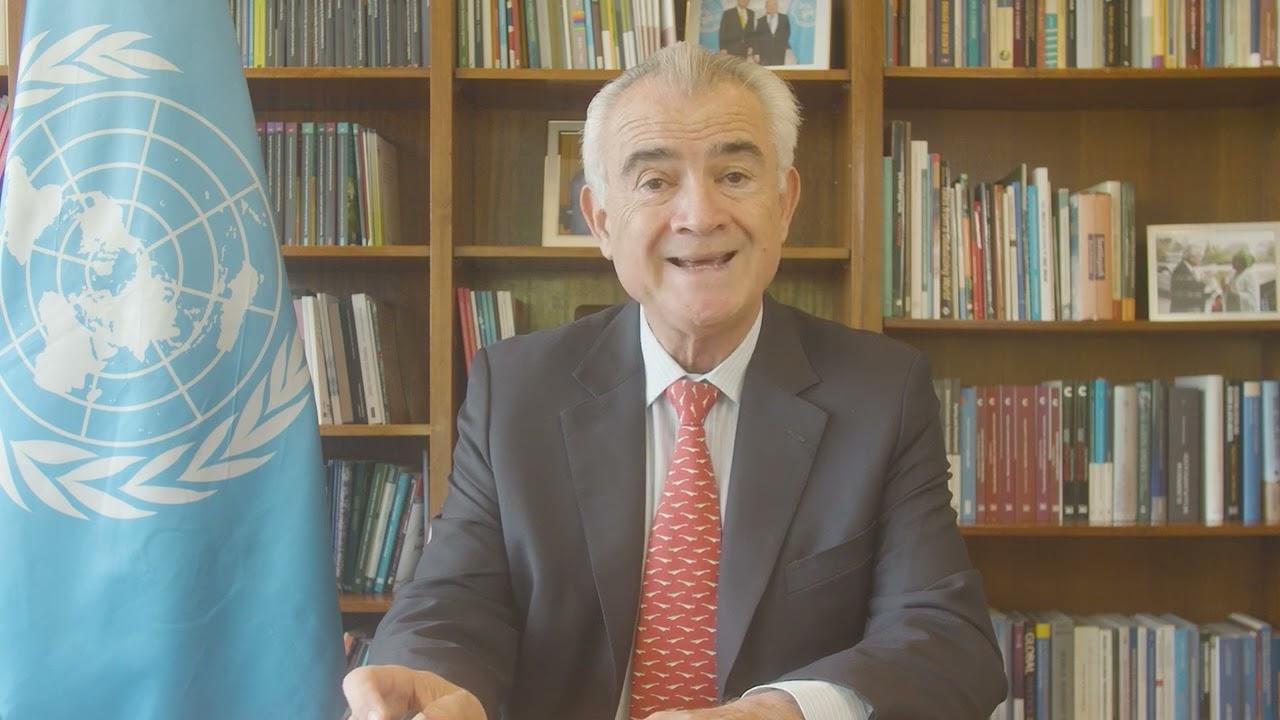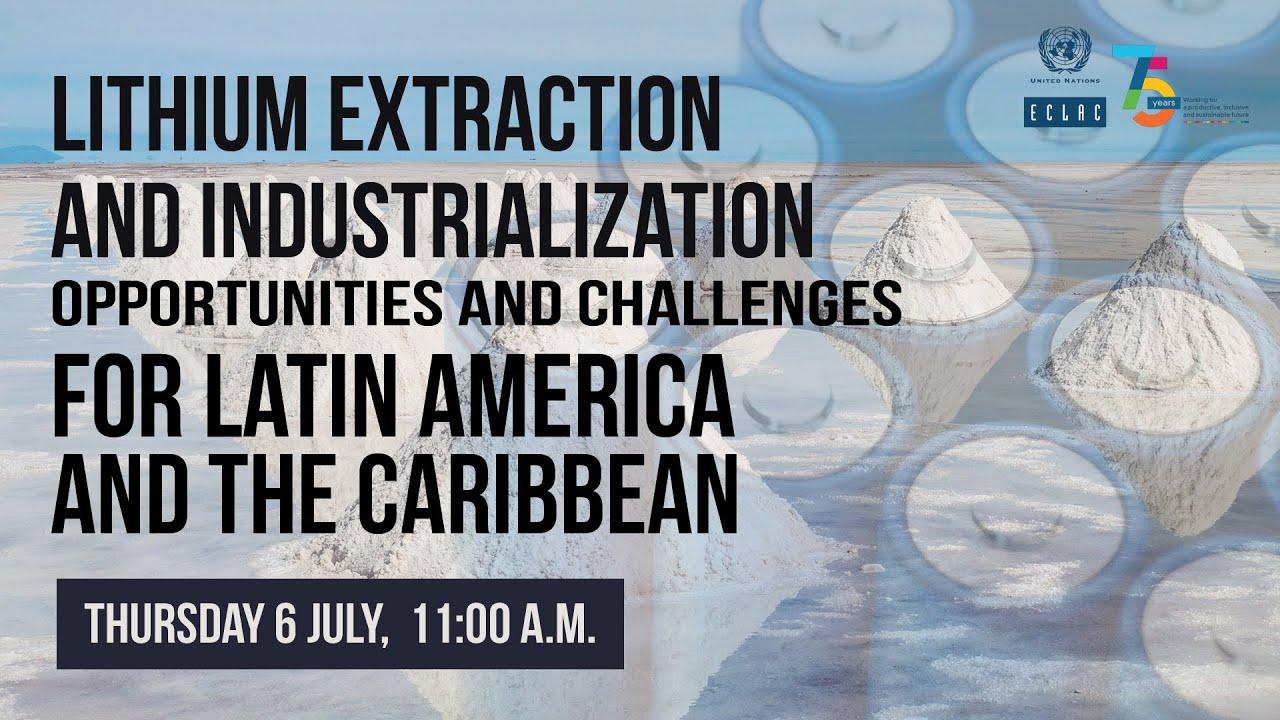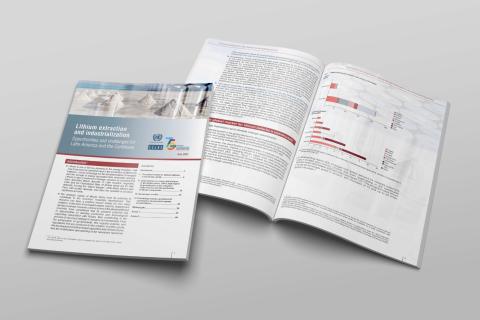video
Good afternoon.
Dear colleagues of the Global Energy Interconnection Development and Cooperation Organization (GEIDCO).
Dear Executive Secretaries of the UN regional commissions.
Ministers and distinguished guests.
It is my pleasure to be with you in this event and this panel on innovation and impetus on global energy interconnectivity.
I must begin by congratulating China for the Global Energy Interconnection (GEI) initiative and GEIDCO for your leadership in promoting this initiative, creating strong partnerships with all the co-organizing organizations of this event, and many others.
Also, for acting as a think tank with publications such as the Research on Global Electricity Development Index that will be launched today.
At ECLAC we see Latin America and the Caribbean countries caught in at least three development traps. The first is a trap of low capacity to grow. From 2014 to 2023, the region's average growth was only 0.8% per year, less than the 2% average growth during the infamous lost decade of the 1980s.
But this low capacity to grow phenomenon is not limited to the last decade. In the 30 years from 1950 to 1979, the region grew at an average of 5.5%. In the next 30 years, from 1980 to 2009, growth halved to 2.7%, and in the last 15 years since 2010, it has only been 1.9%. Clearly, we have a structural problem of low capacity to grow.
This is why we have emphasized that the first of eleven great transformations required is what we call a great productive transformation capable of delivering higher, more sustained, more inclusive, and more sustainable economic growth.
And we are arguing that the way to promote this great productive transformation and new growth strategy is through a new generation of productive development policies, aimed at increasing the technological sophistication of production, and at economic diversification and complexity.
At the center of this new approach to productive development policies is the need for countries to have clear strategies in a series of dynamizing or driving sectors for this transformation.
We have made a proposal of some 14 sectors which include: the energy transition, the shift towards electrical mobility, the circular economy, the bioeconomy, sustainable water management, and sustainable tourism, among other sectors and areas of great opportunity. To this group of sectors we call the great push towards sustainability.
Other sectors include the export of internet enabled modern services, the care society, medical devices, the pharmaceutical and lifesciences sectors, and others.
This is, in summary, our proposal for what countries need to do to escape the low capacity to grow trap and transform their current regional development model.
We have widely discussed these policies, in the special 75th Anniversary issue of the CEPAL Review, our academic journal, and in our upcoming new annual flagship report, the Panorama of Productive Development Policies in Latin America and the Caribbean, which will be released in September.
And, in case you are curious, the other two traps we identify are a high inequality, low social mobility, and low social cohesion trap; and a weak institutional capacities and complex governance trap.
I will not comment on these ones now, just to say that dynamizing growth is also a necessary, although not sufficient condition, to escape the high inequality and low social mobility trap because dynamic labor markets are crucial for creating good, decent formal jobs. But of course, this second trap also requires strengthened welfare States and social policies, revitalized education and vocational training systems, and more progressive tax systems, among other conditions. We have elaborated on these in the CEPAL Review and other documents.
In this context, accelerating the energy transition presents a valuable opportunity to address several development traps simultaneously. The energy transition is not just a sectoral issue but a vector of transformative growth across all productive sectors, including transportation, industry, homes, and buildings.
At ECLAC, we strongly advocate for closing the gaps in access to modern and clean energy services, increasing energy efficiency in all sectors, progressively expanding the renewable electrification of energy-dense sectors, and supporting the development of clean technologies such as solar and wind energy, green hydrogen, and energy storage.
Indeed, it is not an exaggeration to say that we are at the dawn of a new renewable and efficient energy revolution for our countries. However, our analysis shows that we are not on track to achieve SDG 7 in all its targets except for universal energy access. Therefore, immediate action is necessary in all our countries.
And in this context the Global Energy Inter-Connection and GEIDCO can be major allies and partners.
Our region's comparative advantages for the energy transition, decarbonization, renewability, and development of new industries are enormous. We have a large endowment of renewable natural resources and the most renewable electricity mix in the world (65%), with high potential for renewable sources like solar and wind. However, we are currently utilizing only 10% of our wind potential and just 1% of our solar potential.
We also have significant production and reserves of strategic minerals critical for the energy transition, such as lithium and copper.
Our region is competitively positioned in the global market for renewable technologies and the development of innovation and new industries, such as green hydrogen and batteries.
But we also face multiple challenges. One is the still high proportion of fossil fuels used mainly in transportation and manufacturing, which consume up to 67% of total primary energy supply.
Additionally, 16 million people in our region still lack access to electricity, and 83 million do not have clean cooking systems. The lowest income quintile has, on average, nine times less access to electricity than the highest income quintile, with the gap almost doubling among our rural population. Furthermore, almost 40% of the indigenous and Afro-descendant population lacks access to electricity. Affordability gaps are also quite large.
We also need to pay attention to the social and human rights dimension around the energy transition
Addressing innovation in the energy transition requires modernizing and strengthening governance ecosystems, institutional and regulatory frameworks, and public-private participation and cooperation.
We also need to increase investment in infrastructure, including access, transmission, distribution, and interconnection, with an emphasis on innovation and new technologies.
Coordinating energy and productive development policies is crucial for driving new and innovative industrial chains and retaining added value.
Strengthening energy complementarity and interconnection between the region's energy systems to generate efficiencies and economies of scale is necessary, and again in this task the GEI initiative and GEICO can be major partners.
As many of you might know, ECLAC has nurtured public policy dialogues with governments, international organizations, the private sector and strategic partners, to contribute to the deployment of national energy transition routes.
For example, at the recent Meeting of Energy Ministers of the Energy and Climate Partnership of the Americas, convened by the OAS and held in March of this year, ECLAC, together with OLADE and the host Government of the Dominican Republic, analyzed the region's progress and challenges for a just energy transition.
We launched a strong Call to Action to governments, the private sector, development banks, and other key actors to accelerate the energy transition in Latin America and the Caribbean.
We are also organizing the first regional Energy Transition Dialogues and an Energy Planning Forum in October of this year.
In conclusion, the energy transition and energy interconnection is part of our vision of the much needed great productive transformation that the region requires to escape the low capacity to grow trap and advance towards a more productive, inclusive and sustainable growth pattern.
And for this we need partners like GEI and GEIDCO. So it has been a pleasure to participate in this event.
Thank you again very much for your attention and commitment.


